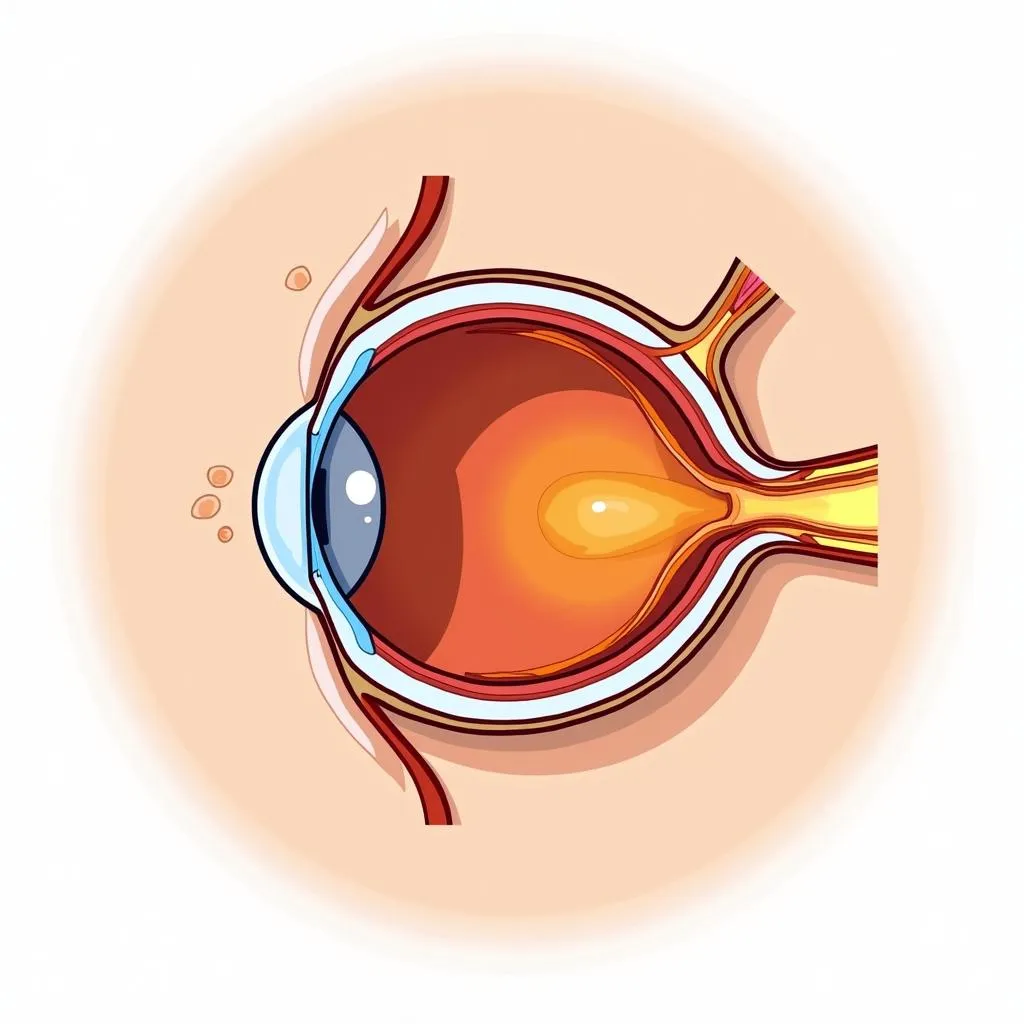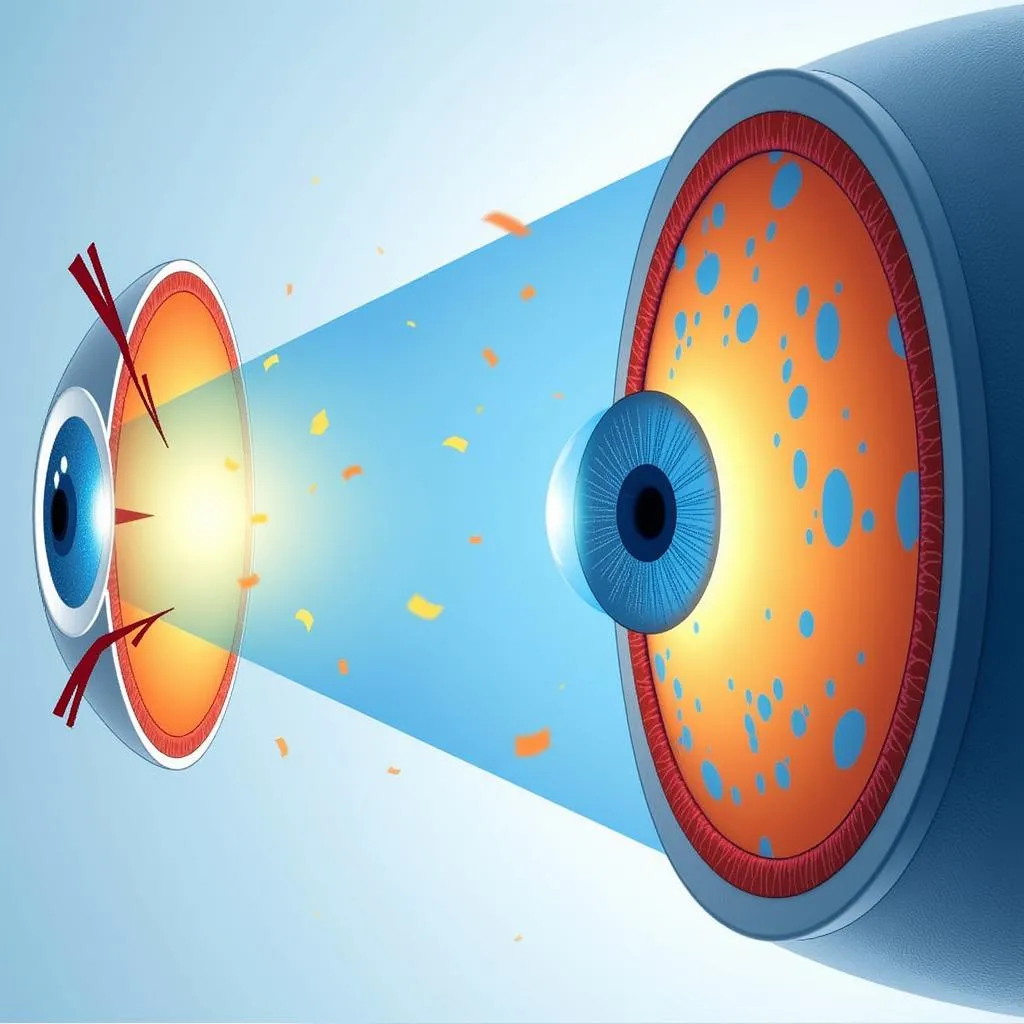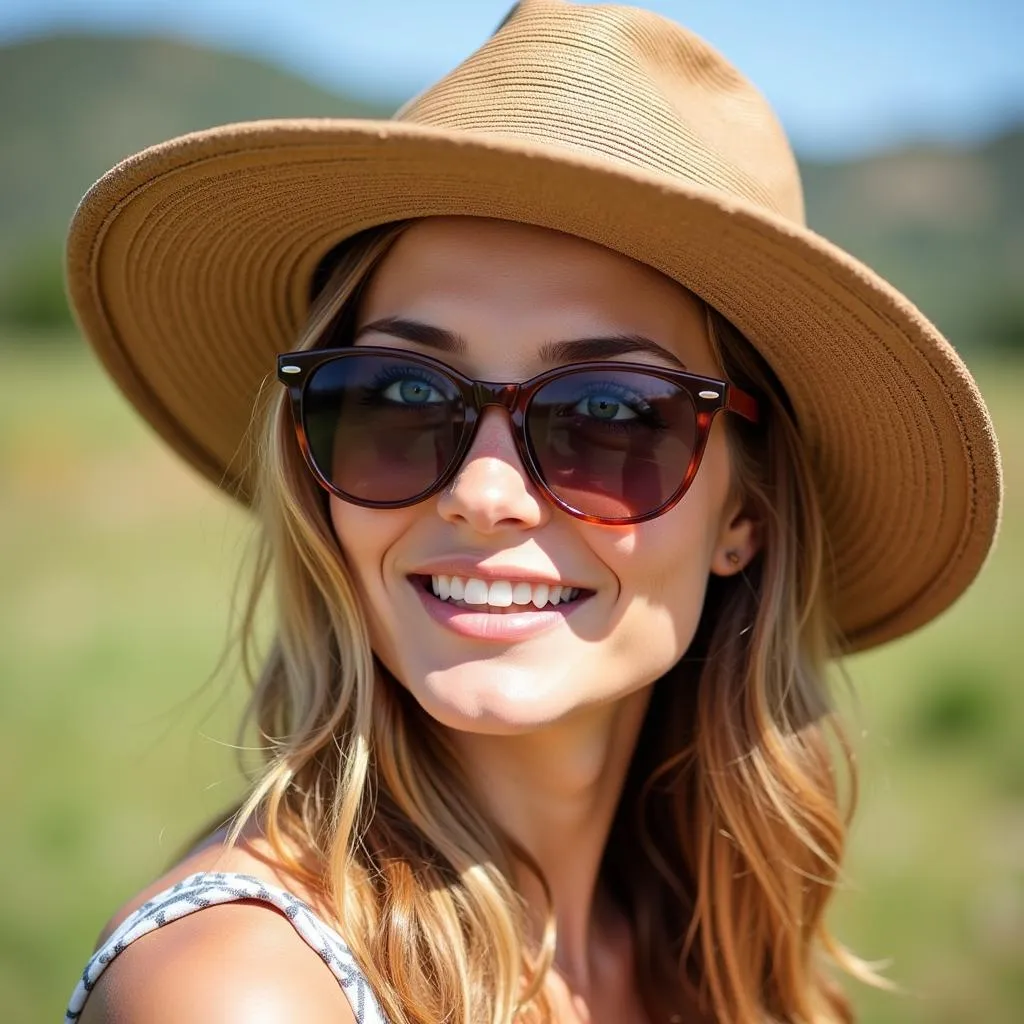Have you ever wondered why some people seem to squint more in the sun than others? Or why certain eye colors appear to shimmer more brightly in certain lights? It all comes down to one key factor: light sensitivity. While all eyes are sensitive to light, some are more so than others, and this difference can often be linked to eye color.
But which eye color is most sensitive to light? Let’s dive into the science behind eye color and light sensitivity to uncover the answer.
The Science of Eye Color and Light Sensitivity
Our eyes are incredibly complex organs, and the color of our eyes is determined by the amount of melanin present in the iris. Melanin is a pigment that not only gives our eyes their color but also plays a crucial role in protecting them from the sun’s harmful ultraviolet (UV) rays.
Think of melanin as a natural sunscreen for your eyes. The more melanin you have, the darker your eyes will be, and the more protection you have against UV radiation.
 Eye Anatomy: Melanin Distribution
Eye Anatomy: Melanin Distribution
- Brown eyes: These contain the highest levels of melanin, providing the most protection from light.
- Hazel eyes: A mixture of brown and green pigments, hazel eyes offer moderate light sensitivity.
- Green eyes: With less melanin than brown or hazel eyes, green eyes are more sensitive to light.
- Blue eyes: These eyes have the least amount of melanin, making them the most sensitive to light.
Why Blue Eyes Are Most Sensitive to Light
Blue eyes are truly mesmerizing, but their captivating beauty comes at a price: increased light sensitivity. Because blue eyes lack significant melanin pigmentation, they are less effective at absorbing and scattering light. This means that more light can enter the eye, leading to a greater chance of glare and discomfort, especially in bright environments.
 Light Scattering and Eye Color
Light Scattering and Eye Color
Living with Light Sensitivity: Tips for Blue-Eyed Individuals
If you have blue eyes, you might find yourself squinting more often, especially outdoors on sunny days. But don’t worry! There are plenty of ways to manage light sensitivity and protect your precious eyesight:
- Sunglasses are your best friend: Invest in a good pair of sunglasses with 100% UV protection to shield your eyes from harmful rays.
- Hats are helpful too: A wide-brimmed hat can provide extra shade and reduce the amount of light entering your eyes.
- Be mindful indoors: Even indoors, be aware of bright overhead lights and consider using lamps with softer bulbs.
Beyond Eye Color: Other Factors Affecting Light Sensitivity
While eye color plays a significant role, it’s not the only factor that determines light sensitivity. Other factors that can come into play include:
- Age: Light sensitivity can increase with age as our eyes naturally produce less melanin.
- Medical conditions: Certain medical conditions, such as albinism, can also cause light sensitivity.
- Medications: Some medications can increase sensitivity to light as a side effect.
 Protecting Your Eyes From the Sun
Protecting Your Eyes From the Sun
Conclusion
So, the answer to the question “Which eye color is most sensitive to light?” is definitively blue. While blue eyes are undeniably captivating, their lower melanin levels make them more susceptible to glare and discomfort in bright conditions.
Remember, no matter your eye color, protecting your eyes from the sun is crucial for maintaining healthy vision. By taking simple precautions and being mindful of light sensitivity, you can enjoy the beauty of the world around you while keeping your eyes safe and comfortable.
FAQs
-
Can light sensitivity be a sign of a serious eye problem?
While light sensitivity is often harmless, it can sometimes be a symptom of an underlying eye condition. If you experience sudden or severe light sensitivity, it’s essential to consult an eye doctor to rule out any potential problems. -
Do people with light-colored eyes need to wear sunglasses more often?
Yes, individuals with lighter eye colors, particularly blue and green eyes, are more susceptible to UV damage and glare. It’s highly recommended they wear sunglasses with 100% UV protection whenever they are outdoors, even on cloudy days. -
Are there any benefits to having light-colored eyes?
While light-colored eyes are more sensitive to light, research suggests that individuals with blue eyes may be less likely to develop certain eye conditions, such as age-related macular degeneration (AMD). However, more research is needed to confirm these findings. -
Can eye color change over time?
While it’s rare, eye color can slightly change in some individuals due to factors like aging, medication use, or certain medical conditions. However, dramatic changes in eye color are uncommon and should be discussed with a medical professional. -
Can contact lenses help with light sensitivity?
Yes, there are specialized contact lenses available that can help reduce light sensitivity. These lenses typically have a darker tint or filter that helps to minimize glare and discomfort.
Do you have other questions about eye color, light sensitivity, or other color-related topics? Explore more insightful articles on our website! You can learn about intriguing color phenomena in articles like “What is all the colors combined?” or delve into the fascinating world of animal vision with articles like “Do deer see colors?” and “Can geese see color?“
If you need assistance with your color choices or have any questions, please don’t hesitate to contact us. Our dedicated team is available 24/7 to provide support. You can reach us at Phone Number: 0373298888, Email: [email protected], or visit us at 86 Cầu Giấy, Hà Nội. Let us help you create vibrant and inspiring spaces that reflect your unique style!
